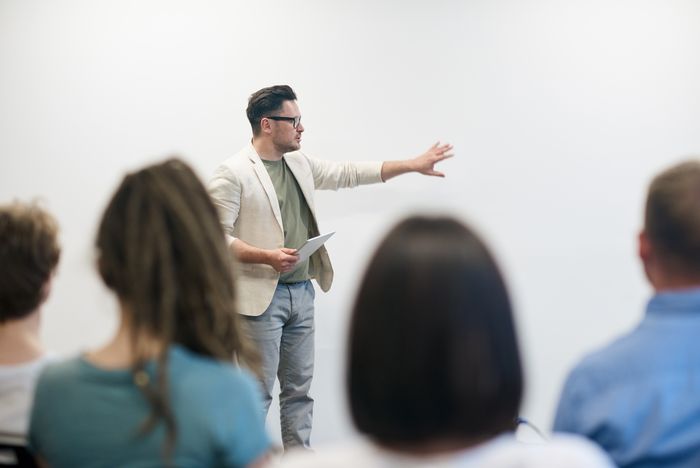Academic staff as change agents fostering internationalisation
SUCTI – Systemic University Change Towards Internationalisation – was the predecessor project which, as a strategic partnership from 2016 to 2019, was tasked with developing workshops and courses through Erasmus+ on the topic of internationalisation intended for the representatives of university administration bodies. From 2020, the initiative will seamlessly extend its scope of action to include lecturers as a key stakeholder group. The aim now is to identify which tools and types of support lecturers need in order to act as change agents fostering the internationalisation of higher education.
The first survey provides interesting findings
From mid-March to mid-April, the consortium undertook an initial SUCTIA study in which a qualitative survey was conducted in 15 European countries at the same time, asking both university administrators and lecturers to relate their experiences and to indicate which factors are useful to their work in the field of internationalisation. The feedback provides an initial picture highlighting different perspectives. The majority of lecturers are very open to international commitment. This aspect is nevertheless incorporated into day-to-day teaching and research activities – and is not particularly emphasised in the context of daily work. Furthermore, while lecturers participate in international cooperation programmes, only a minority of them play a part in developing the internationalisation strategy within their own university. The data collected also show that communication and information sharing between departments, faculties and rector’s offices must be developed much further.
The SUCTIA programme is designed to harmonise this dissonance. It has been recognised that in addition to additional resources, lecturers and researchers are keen to see scientific incentives promoting an intensification of the internationalisation process. The SUCTIA team will now continue to analyse these and other indicators from the study before publishing them over the course of the coming months. In addition to the study, train-the-trainer programmes are also being planned along with a targeted expansion of the network. The project is scheduled to run until 2022.
